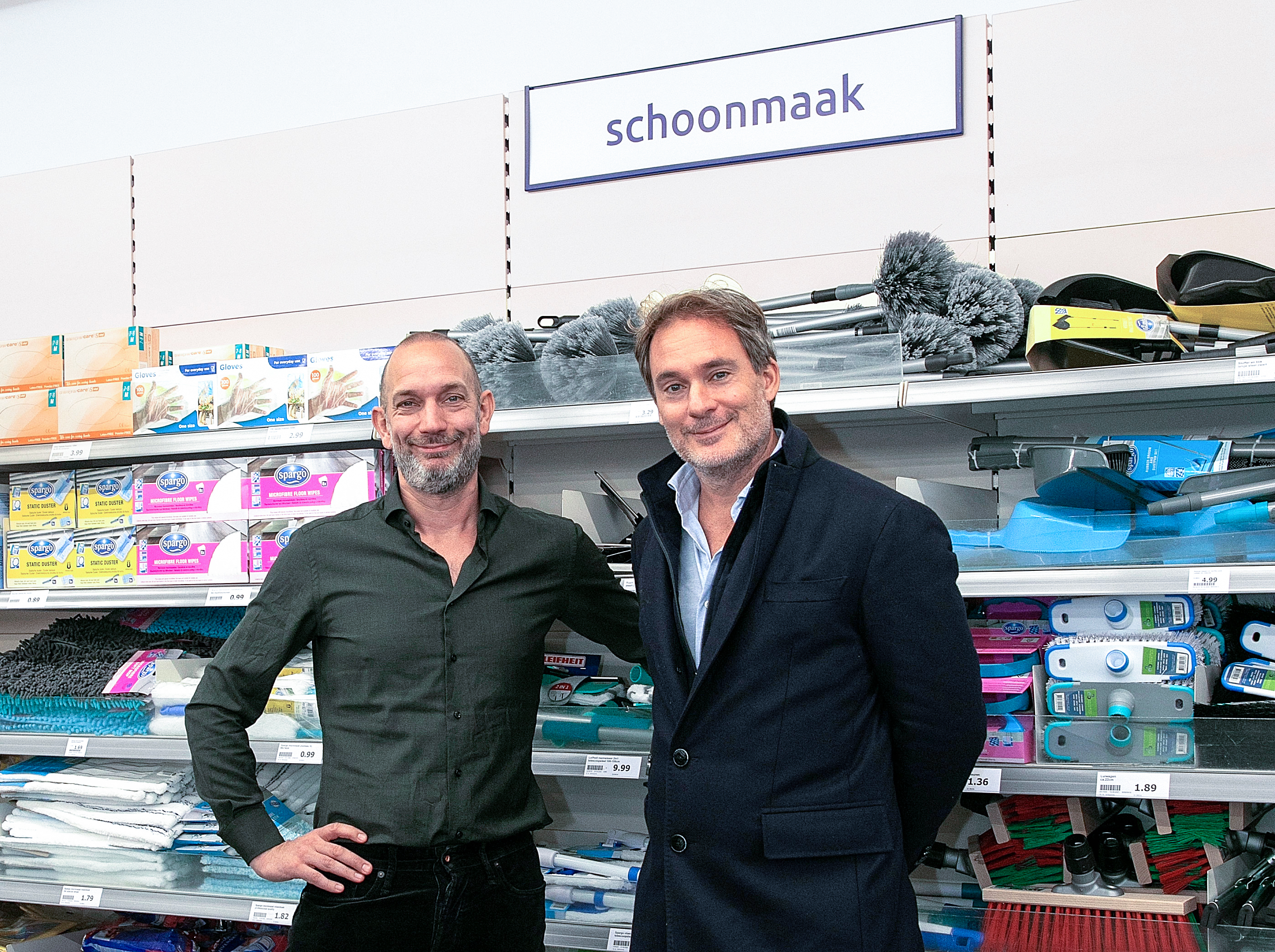From supplying one store in the Netherlands to hundreds of stores across Europe, some suppliers have literally grown with Action over the last thirty years. And in order to maintain such rapid growth, suppliers need to continue to innovate. As Dayes’ managing directors Rogier van der Vat and Fabio Magnani tell us, that’s really hard to do.
Back in 1998, their company started out supplying microfibre cloths, which are everywhere you look nowadays. Since then, Dayes has risen to an elite level, delivering more than 500 products to Action stores across Europe on a daily basis. “To stay at this level, you need to constantly innovate.”
How have you grown with Action?
Rogier: “Growing at the same pace sounds easy, but as a supplier it means you have to continue to develop at the same speed – and that speed is really high. You can’t lag behind. It simply doesn’t work like that.”
Fabio: “I agree, and apart from innovating (new) products, it’s often said – especially by banks – that you can’t be too reliant on one customer. And while that’s true, of course, things have always gone well between us and Action.”
Is that because of the collaboration? Or to put it another way, the relationship?
Fabio: “As suppliers, we really grow in step with Action. In addition to that being pretty unique, that means there is a mutual responsibility, too. We both know who we are, and what we need from each other. The relationship is strong, but that doesn’t mean orders are simply gifted to us. Every time negotiations take place, they’re hard-fought, and that hasn’t changed in thirty years!”
Is that business nous typical of Action?
Rogier: “I would say so, yes. Rob [Wagemaker, one of Action’s co-founders] sold everything at wholesale markets when they started out. We were there, too, as we were only supplying market traders back in the day. Action was our first retail customer, and I remember it like it was yesterday. We supplied ironing board covers that we sourced from Italy, from a van in Zwaagdijk. And Rob was waiting for them, standing there with his sleeves rolled up.” Fabio: “Yeah, and if he didn’t like something, you’d know straight away.”
